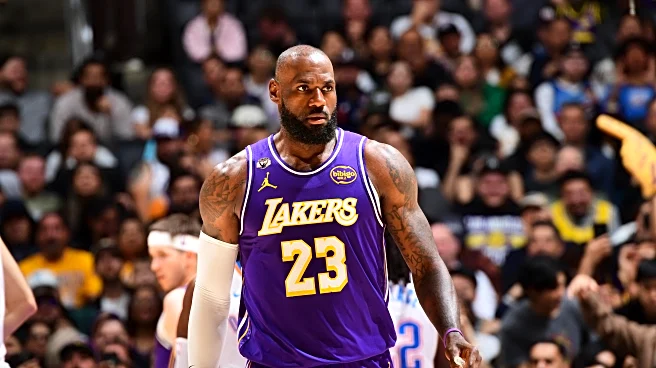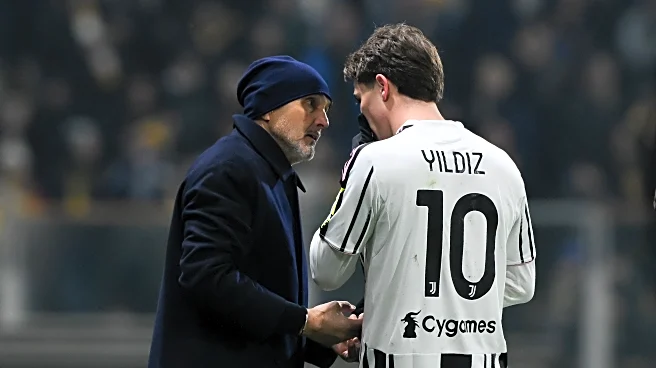Rapid Read • 8 min read
Cheryl Hines, actress and wife of Health Secretary Robert F. Kennedy Jr., has publicly criticized Jack Schlossberg, grandson of former President John F. Kennedy, over his comments regarding vaccine skepticism. Schlossberg had previously urged Hines to apologize to the family of a child who died from measles, a disease preventable by vaccination. Hines expressed confusion over Schlossberg's behavior, suggesting he seeks attention. The criticism comes amid ongoing debates about vaccine safety, with Kennedy Jr. known for his controversial stance against vaccines, claiming they cause autism—a claim widely debunked by scientific research. Schlossberg has been vocal on social media, challenging Hines and Kennedy Jr.'s views, particularly after a measles outbreak in Texas resulted in the death of an unvaccinated child.
AD
The exchange highlights the ongoing public debate over vaccine safety and misinformation. As Health Secretary, Kennedy Jr.'s stance on vaccines has significant implications for public health policy and trust in scientific research. Schlossberg's criticism reflects broader societal concerns about the impact of vaccine skepticism on public health, especially as measles cases rise. The discourse underscores the tension between personal beliefs and public health responsibilities, affecting how policies are shaped and implemented. Stakeholders in the healthcare sector, including policymakers and medical professionals, are closely monitoring these discussions, as they influence public perception and vaccination rates.
The controversy may prompt further scrutiny of Kennedy Jr.'s policies and actions regarding vaccine research and public health initiatives. As public figures continue to debate vaccine safety, there could be increased pressure on the government to address misinformation and reinforce scientific consensus. The healthcare community might advocate for stronger educational campaigns to counteract vaccine skepticism. Additionally, Schlossberg's continued criticism could lead to more public discussions and potential policy reviews, especially if measles cases continue to rise.
The situation raises ethical questions about the responsibilities of public figures in influencing public health decisions. It also highlights the cultural divide between scientific evidence and personal beliefs, which can affect societal trust in health institutions. Long-term, this debate may influence how health education is approached, potentially leading to shifts in how scientific information is communicated to the public.
AD
More Stories You Might Enjoy











